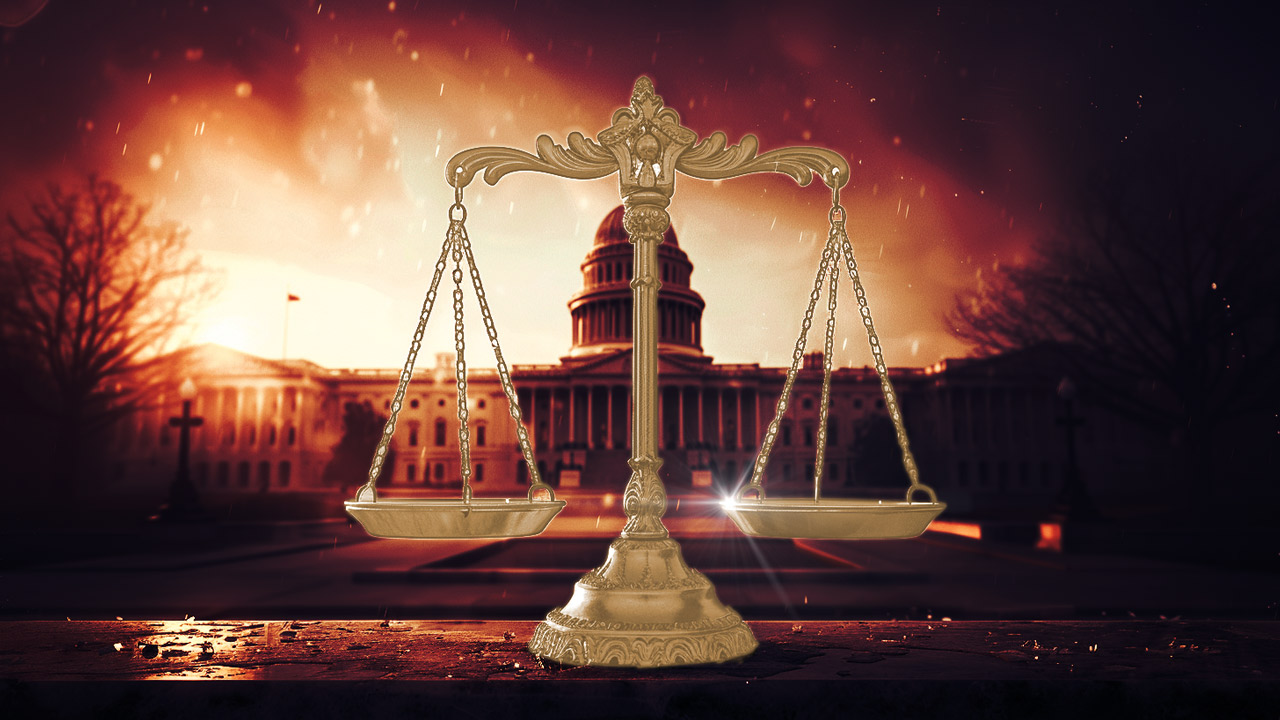Raising the Roof on Debt
By Peter Schiff
Today the U.S. government officially borrowed beyond its $14.29 trillion statutory debt limit. And even though the Obama administration has assured us that accounting gimmickry will allow the government to borrow for another few months, the breach has given seeming urgency to Congressional negotiations to raise the debt ceiling. Republicans are making a great show of acting tough by linking their “yes” votes with promises for future budget cuts (that could even slow the rate of debt increases at some uncertain point in the future). But as we go through the process, many novice observers may wonder why we have a debt ceiling at all when our government has never shown the slightest inclination to respect its prior self-imposed limits.
The ceiling was first imposed in 1917 as part of a deal that passed the Liberty Bond Act that funded America’s entry into the First World War. To make it easy for the Treasury to sell those bonds, Congress also amended the Federal Reserve Act to allow the Fed to hold government bonds as collateral. But given the potential for unchecked Federal deficits, Congress sought to limit taxpayer exposure to $11.5 billion.
The problem was that Congress never passed a law to prevent future Congresses from raising the ceiling. And even if it had, that law could have been rewritten by future legislation. Sure enough, when the Second World War rolled around the debt limit was raised frantically, leaving it at $300 billion by 1945. But believe it or not, after the War ended, the limit was actually reduced to $275 billion.
Despite the costs associated with the Korean War, the next increase did not come until 1954. And over the ensuing eight years, the ceiling was raised seven times and reduced twice, finally getting back to $300 billion in 1962. Since then, Congress has voted to raise the ceiling 74 times without a single reduction.
Practically speaking, a ceiling that is raised automatically is no ceiling at all. Given that, why not dispense with the pretense? The reason is politics. No Congressman wants to be on the record voting for unlimited debt, yet most are willing to rail against fiscal recklessness while raising the ceiling every time it’s reached. Any Congressman who gives lip service to a balanced budget Amendment but votes to raise the debt ceiling is a hypocrite. No one needs constitutional help to hold the line on the debt right now!
But epic levels of Federal red ink and the approach of the 2012 elections have raised the stakes. Despite the newfound urgency, nearly all Democrats and a very large chunk of Republicans argue that failure to raise the ceiling will be tantamount to economic suicide. They argue that such a rash move will cause the U.S. to default on outstanding debt obligations, thereby sending interest rates sharply higher across the board. Higher interest rates they argue would cripple the economy and permanently increase debt service costs. As a result, they predict capping debt now will precipitate a far deeper economic contraction than what we have already seen in the last few years.
Few see the inherent absurdity in the notion that taking on more debt improves the economic health and creditworthiness of the United States. I would argue for the much simpler idea that more debt weakens a nation’s financial position. More importantly, capping U.S. debt at current levels means bringing a future crisis into the present where it can be dealt with in practical terms. This is something that nobody in Washington actually wants.
If we do today what we have failed to do in the past, we very may well default on a portion of our debt. No doubt our creditors will suffer. But such near term pain will lead to a quicker and healthier recovery. Out of control Federal spending will have to be dealt with now. A downgraded credit rating will make it harder for the United States to continue borrowing, and as a result should be viewed as a blessing in disguise.
A reduction in debt levels is good economics. Remember, taxpayers will have to repay with interest anything the government borrows now. The more the government borrows, the larger it grows, and the larger it grows, the weaker the economy becomes. The less money the government borrows, the more that is available for the private sector to borrow to increase production and create jobs.
Failing to raise the debt ceiling will force Congress and the President to tell the truth to Social Security and Medicare beneficiaries who have been promised more than taxpayers can deliver. They will have to concede that so-called government “trust funds” are mere accounting gimmicks, and that benefits will need to be cut if the programs are to be solvent. They will have to tell the truth to our creditors that the U.S government has borrowed beyond the ability of its citizens to repay. And lastly, the stark reality will force the government to tell the truth to Federal employees whose salaries and benefits are unsupportable given our fiscal weakness.
But, on the other hand, if we raise the debt ceiling, we can postpone the crisis into an indefinite future. All of these tough choices could be avoided. Government pay and benefits will flow unabated, and our creditors will continue to get their interest payments now. But in the future, the value of principal repayments and government benefits and paychecks will lose purchasing power. That’s because if we keep raising the ceiling indefinitely, we risk destroying our currency. But the long slow death of a currency and the ebbing of a nation’s economic vitality doesn’t make for huge headlines.
It is for that reason I am 100% confident that Congress will do the wrong thing and raise the debt ceiling for the 75th time in 50 years. In the end there will be some kind of phony compromise with each side claiming victory. But while the politicians celebrate another dodged bullet, the U.S. economy will continue to be shot full of holes.
Follow us on Twitter to stay up-to-date on Peter Schiff’s latest thoughts: @SchiffGold
Interested in learning about the best ways to buy gold and silver?
Call 1-888-GOLD-160 and speak with a Precious Metals Specialist today!



 The solution to a problem shouldn’t make the problem worse. But apparently, California’s policy makers missed that memo. On April 1st, the state instituted a $20 minimum wage for fast food workers, the highest in the US. With California’s absurdly high cost of living, the policy appeared to make life more manageable for low-income residents. Unfortunately, as the adage goes, “If it sounds too […]
The solution to a problem shouldn’t make the problem worse. But apparently, California’s policy makers missed that memo. On April 1st, the state instituted a $20 minimum wage for fast food workers, the highest in the US. With California’s absurdly high cost of living, the policy appeared to make life more manageable for low-income residents. Unfortunately, as the adage goes, “If it sounds too […] The monetary battle of the 20th century was gold vs. fiat. But the monetary battle of the 21st century will be gold vs. bitcoin. With Wall Street jumping into the game with bitcoin ETFs, a bitcoin halving recently splitting the block reward for miners in half, and both gold and bitcoin hovering near their all-time highs, it’s a great time for […]
The monetary battle of the 20th century was gold vs. fiat. But the monetary battle of the 21st century will be gold vs. bitcoin. With Wall Street jumping into the game with bitcoin ETFs, a bitcoin halving recently splitting the block reward for miners in half, and both gold and bitcoin hovering near their all-time highs, it’s a great time for […] What is Nvidia? If you’re a committed gamer the question may sound like nonsense. Nvidia, which was founded in 1993, is a tech company that makes GPUs and other products. It originally specialized in making products for the video game industry, that assisted in 3D rendering. If you were a committed gamer, you probably owned their products. If you weren’t, you might not have heard of them.
What is Nvidia? If you’re a committed gamer the question may sound like nonsense. Nvidia, which was founded in 1993, is a tech company that makes GPUs and other products. It originally specialized in making products for the video game industry, that assisted in 3D rendering. If you were a committed gamer, you probably owned their products. If you weren’t, you might not have heard of them. With the AI boom and green energy push fueling fresh copper demand, and with copper mines aging and not enough projects to match demand with supply, the forecasted copper shortage has finally arrived in earnest. Coupled with persistently high inflation in the US, EU, and elsewhere, I predict the industrial metal will surpass its 2022 top to reach a […]
With the AI boom and green energy push fueling fresh copper demand, and with copper mines aging and not enough projects to match demand with supply, the forecasted copper shortage has finally arrived in earnest. Coupled with persistently high inflation in the US, EU, and elsewhere, I predict the industrial metal will surpass its 2022 top to reach a […] America’s trust in its institutions has rapidly eroded over the past 20 years. We have a lower level of trust in our judicial system and elections than most European countries. Some of this is natural, as Americans are uniquely individualistic, but much of it arises from repeated government failures.
America’s trust in its institutions has rapidly eroded over the past 20 years. We have a lower level of trust in our judicial system and elections than most European countries. Some of this is natural, as Americans are uniquely individualistic, but much of it arises from repeated government failures.
Leave a Reply